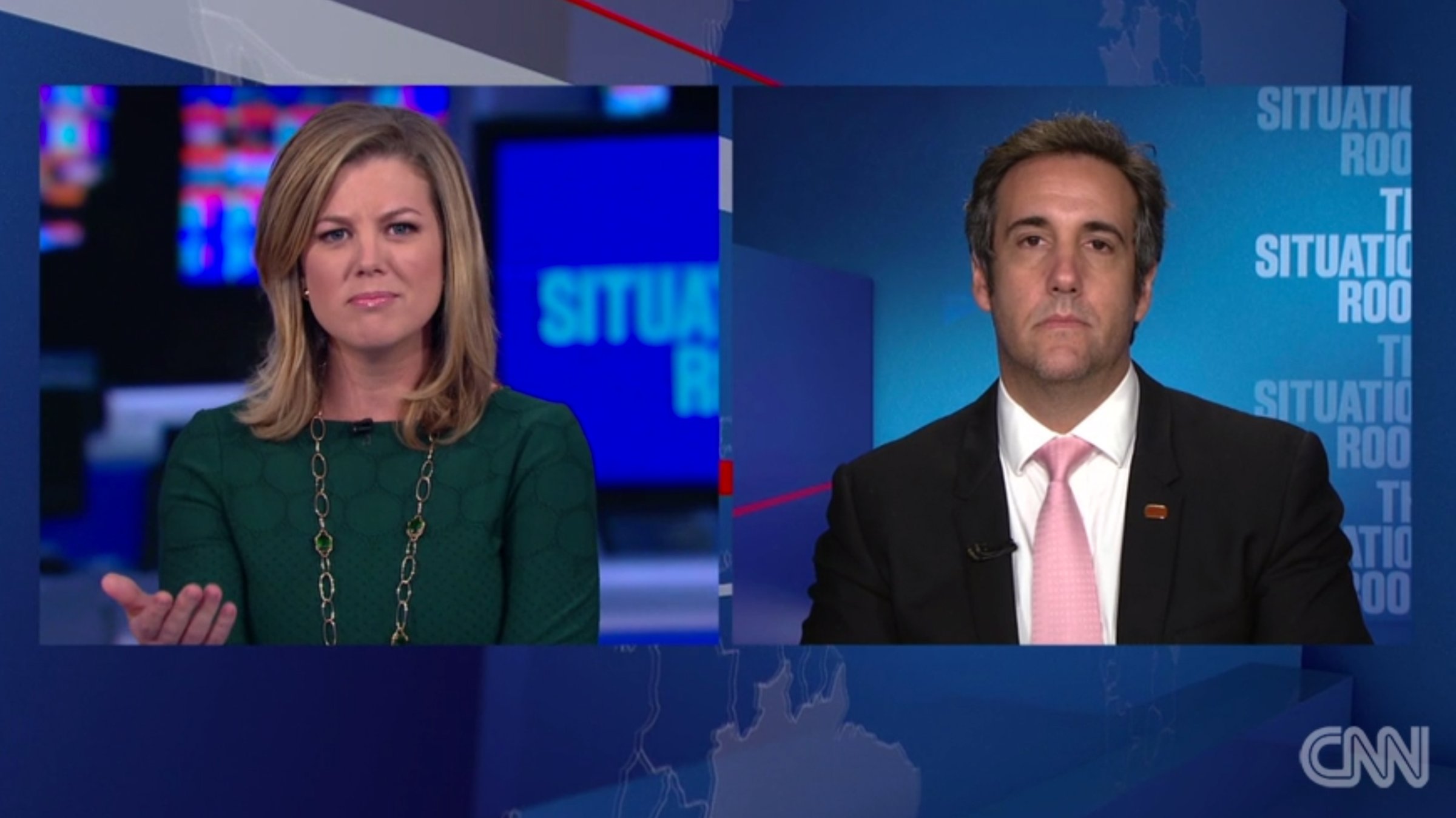
Sarah Miller writes for The New Yorker, The Hairpin and other publications
An entire nation lol-ed as one when CNN’s Brianna Keilar confronted newly-minted Donald Trump campaign staffer Michael Cohen. Keilar made the reasonable, true assertion that Trump was down in the race, and new Trump staffer Michael Cohen retorted, “Says who?” twice in an awkward conversational misfire, declining to believe the polls, that’s who.
After this summer, we deserved a laugh. But now that we are done wiping our mirth-stained cheeks, let’s talk about “Says who?” as an American artifact. Whether uttered verbatim or expressed more subtly with mere disregard for facts, “Says who?” embodies something very dear to Americans: the right to act like what’s actually happening is just a bunch of bullshit someone made up to ruin your life.
Take the utterly scientifically verifiable fact of climate change as an example. It is greatly threatened by the ubiquity of “says who” thinking. Here’s “who says” it: 2014, 2015, and 2016 have all set global temperature records. Average global sea level is expected to rise 7-23 inches during this century. By 2040 the Arctic region could very well have an ice-free summer. And while many more Americans believe in man-made climate change now than they did ten, five, or even two years ago, a disturbing 30% of them are still working the old “Says who?” routine.
In March of this year, Marco Rubio informed an applauding crowd in the rapidly sinking city of Miami that the “climate was always changing.” Now, Rubio has called Trump a con-man. Surely such an accusation should be backed up by, well, something other than his own “Says who?” behavior. But when reporters brought up the scientific consensus about climate change, Rubio not only acted like the facts had absolutely no bearing on his opinion, he didn’t even acknowledge them. “As far as a law that we can pass in Washington to change the weather, there’s no such thing,” he said. People laughed.
Marco Rubio is an easy target. Conservatives love the “Says who?” game. They will tell you that gay people can be made straight, that children adopted by gay people turn out wrong, that sexism doesn’t exist (seriously, Pew just confirmed that people think that), and when you bring up evidence to the contrary they’ll “Says who?” you until the end of time, or at least until Hart to Hart comes on again. They were the instigators and the enablers of one of the biggest “Says who?” events in history: the Birther Movement.
That said, liberals are no strangers to “Says who?” How many Republicans were among the 17,000 California parents who, during the 2013-2014 year, sought a (now unavailable) philosophical exemption from vaccinating their children?
Having a conversation with an anti-vaxxer is as productive as talking to a six year old who has recently discovered the phrase “I know you are, but what am I?” You can tell people that the guy who said vaccines cause autism was discredited and stripped of his medical license. You can tell people the flu vaccine doesn’t actually make people walk backwards. You can point out that 2.1 million people used to die of the measles every year before they developed a vaccine. Congratulations on that good knowledge, unfortunately all you’ve done is prove to your audience you’re a lemming whose sole purpose in life is to locate and obey signs that say “Cliff this way! Sincerely, The Man.”
You could fit what anti-vaxxers know about science into an Advil, but “Says who?” is deployed nonetheless. One feels like poor Brianna Keilar interviewing Michael Cohen, except that one finds oneself saying “Doctors?” and “Scientists?” rather than “Polls?” (Lemming corrallers, all! Did you know Jonas Salk was in the CIA? Did you know that Mohammed Atta is alive and works in the returns department at the Tehran IKEA?)
Cohen’s enemy is “the lying media” and anti-vaxxers’ is “the lying medical establishment.” But these enemies have something in common: They are powerful entities who have made documented mistakes. Major media outlets originally bought the UVA rape story. The government and the medical establishment condoned the Tuskegee syphilis experiment. It’s good we recognize the imperfections of our institutions. But it’s terrifying that we allow these imperfections to give us the right to invent reality, and to ignore that these institutions do a lot of good things. “They can’t get it right,” Americans say to ourselves. “I will do it better.”
We Americans are very proud of our right to bear arms, our right to free speech, our right to not let anyone pull the wool over our eyes. And this is not necessarily bad unless what’s being pulled over our eyes is actually wool. If you’re an American, chances are you “Says who?”ed someone today. Tomorrow, try listening. Because you know what’s often hiding there, under all those lies? Reality.
More Must-Reads from TIME
- Why Trump’s Message Worked on Latino Men
- What Trump’s Win Could Mean for Housing
- The 100 Must-Read Books of 2024
- Sleep Doctors Share the 1 Tip That’s Changed Their Lives
- Column: Let’s Bring Back Romance
- What It’s Like to Have Long COVID As a Kid
- FX’s Say Nothing Is the Must-Watch Political Thriller of 2024
- Merle Bombardieri Is Helping People Make the Baby Decision
Contact us at letters@time.com